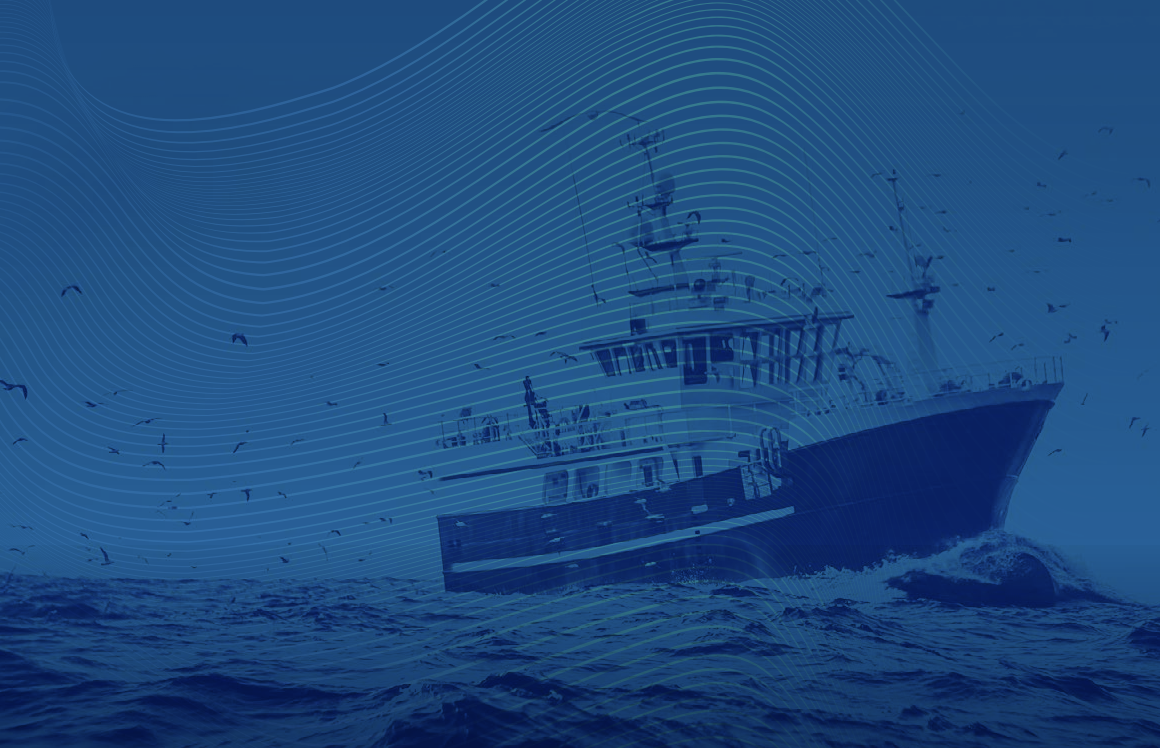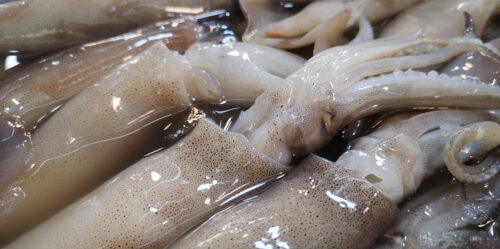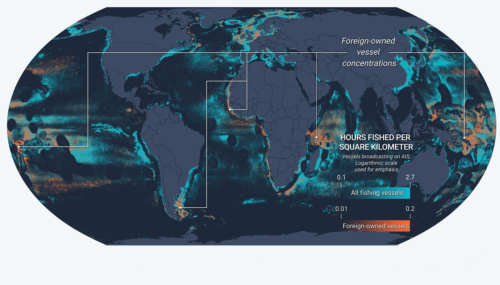Geneva, Switzerland, 29 April 2022 – A report published today sets out how ocean data transparency can enable companies throughout seafood supply chains to avoid produce from illegal, unreported and unregulated (IUU) fishing

The report, ‘Assessing Seafood Supply Chains: New Public-Private Partnership Will Support Companies in Assessing IUU Fishing Risks Using Vessel Data’, is part of a project convened by Friends of Ocean Action at the World Economic Forum in partnership with FishWise, Global Fishing Watch and the Stanford Center for Ocean Solutions. The joint project is leveraging available ocean data to increase transparency across the fisheries sector and enable companies to choose sustainable and ethical products throughout their supply chains.
“Industrial fishing is often ‘out of sight, out of mind’, but we owe it to the marine environment and future generations to be responsible in how we harvest and consume the ocean’s bounty. Data transparency and sharing is a critical building block in this process, and we are excited to use the power of data to clean up seafood supply chains. Illegal fishing is a problem that threatens national and economic security, ecosystem health, sustainable fisheries and human rights. Shining a light on the darkest recesses of commercial fisheries will enable supply chain companies around the world to do the right thing – for fishers, for consumers and for the planet,” said Alfredo Giron Nava, project lead and André Hoffmann Fellow at Friends of Ocean Action, World Economic Forum and the Stanford Center for Ocean Solutions.
Illegal, unreported and unregulated (IUU) fishing is estimated to represent up to 20% of catch worldwide, with losses to the global economy estimated between $10-23.5 billion USD per year. The impacts of IUU fishing are far-reaching. Not only does it take away income from developing countries and threaten coastal livelihoods, it has also been linked to organized crime and human rights violations such as drug smuggling, human trafficking and slavery.
Significant strides have been made in recent years by responsible industry actors to better understand the origin of their products and counter the risks of IUU fishing, by strengthening monitoring and oversight. But current risk assessment practices are often impeded by resource constraints and a lack of product traceability data and verification mechanisms, leading to low levels of trust in the information received.
The supply chain risk project is working to integrate disparate ocean data sources into a single platform, develop new automated analytical capabilities and indicators to improve understanding of risks in fisheries supply chains, and ultimately deliver a data solution tool to make the data accessible and actionable by companies. The new report is a key piece in setting the scene for this work.
Read the full report here and the short version here.

